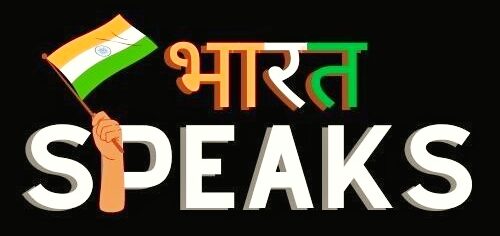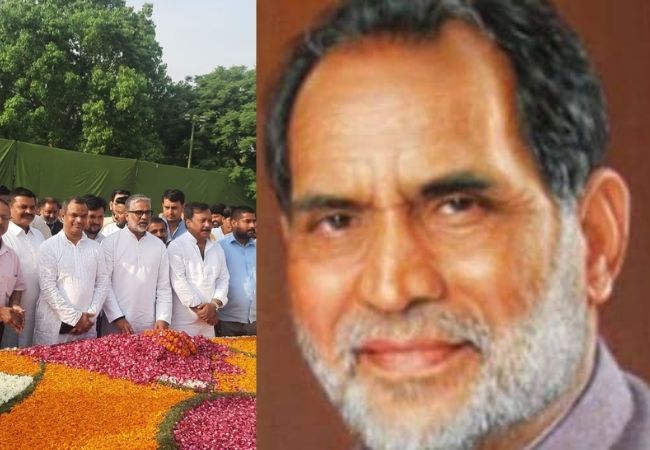NEW DELHI: On the birth anniversary of India’s eighth Prime Minister, Chandra Shekhar Singh, dubbed Young Turk, his son, family and other supporters paid homage at Rajghat, Delhi. His son Neeraj Shekhar paid respect with Daya Shankar Singh, UP’s Transport Minister along with his other supporters.
Chandra Shekhar was born on April 17, 1927. He was born at the house of a farmer in the hamlet of Ibrahimpatti in the district of Ballia, Uttar Pradesh, to a Rajput family. Satish Chandra P.G. College awarded him a Bachelor of Arts degree. Later, in 1950, he completed his master’s degree in political science at Allahabad University. He was the Janata Party’s President from 1977 to 1988. He had a political bent since childhood and was known as a rabble-rouser visionary with revolutionary passion.
Dr. Ram Manohar Lohia was Chandra Shekhar’s first political mentor. He joined the socialist movement after finishing his studies and was appointed secretary of the district Praja Socialist Party, Ballia. After leaving the Socialist Party, he joined the ruling Congress Party. Later that year, in 1962, he was elected to the Rajya Sabha, India’s Upper House of Parliament, where he served for five years. Following that, he was elected to the Lok Sabha from 1977 to 1979, 1980 to 1984, and 1989 until he became Prime Minister of India.
Despite being a Congress Party politician, he was imprisoned and put to Patiala jail following the proclamation of emergency.
He then became the Janata Party’s President. Following Morarji Desai’s victory in the 1977 Indian general election, the Janata Party formed the government. However, the party did not fare well in the 1980 elections and was defeated in the 1984 Indian general election, winning only 10 seats. Jagannath Chowdhary defeated Chandra Shekhar for the Ballia seat.
His relationship with the associated group deteriorated in 1988 as a result of their merger with other parties. Under the leadership of V.P. Singh, they created a new government. As a result, he founded a new party called the Janata Dal socialist group. Rajiv Gandhi, the head of the Congress (I), endorsed him, and he succeeded V.P. Singh as Prime Minister of India in November 1990. Later in 1977, he was elected to the Lok Sabha in all elections until 1984, when the Congress ignored the polls in the aftermath of Indira Gandhi’s assassination. In 1989, he was denied the position of Prime Minister, which he believed he deserved. V.P. Singh beat him to the office and formed the first coalition administration in the country’s history.
Achievements
- During his political career, he founded the Samajwadi Janta Party and defected from the Janata Dal. His people backed him wholeheartedly. He vowed as Prime Minister with the support of his 64 MPs and the leader of the Opposition, Rajiv Gandhi. After Charan Singh, this was the second shortest period he handled. During this time, he was in charge of the Defence and Home Affairs portfolios. When his government was expected to provide a full budget on March 6, 1991, Congress withdrew its backing. As a result, he resigned from his position as Prime Minister on the same day.
- In 1969, he founded YOUNG INDIAN, a weekly distributed from Delhi. Its editorial was prominent enough to be one of the most referenced at the time. Although YOUNG INDIAN was forced to close during the emergency, it resumed regular publishing in February 1989. He served as Chairman of the Editorial Advisory Board. During his detention during the Emergency, he kept a diary in Hindi, which was later published under the title ‘Meri Jail Diary.’ ‘The Dynamic of Social Change’ is a well-known collection of his writings.
- He has established approximately fifteen Bharat Yatra Centres in various parts of the country to educate social and political workers for mass education and integral work in backward pockets of the nation. These centres are located in Kerala, Tamil Nadu, Karnataka, Maharashtra, Madhya Pradesh, Gujarat, Uttar Pradesh, and Haryana.
Chandra Shekhar and Duja Devi exchanged vows. Pankaj and Neeraj are the couple’s two kids. On July 8, 2007, he breathed his last breath. He had multiple myeloma for a while and had been confined to Apollo Hospital in New Delhi since May.
| Birth | 17 April 1927 |
| Death | 8 July 2007 |
| Nationality | Indian |
| Wife | Duja Devi |
| Children | Pankaj Shekhar Singh (elder son) |
| Neeraj Shekhar (younger son) | |
| Alma Mater | Allahabad University |
| Political Parties | Samajwadi Janata Party (Rashtriya) |
| Congress Socialist Party | |
| Indian National Congress | |
| Janata Party | |
| Janata Dal | |
| Positions Held | 8th Prime Minister of India |
| Minister of Information and Broadcasting | |
| Minister of Home Affairs | |
| Minister of Defence | |
| President of the Janata Party |

